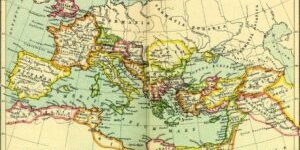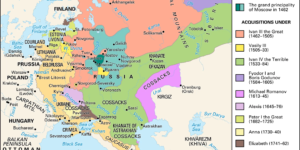Does the UK Need the EU? An Interview With Malcolm Sawyer
No Comments yetWhat was Brexit all about? What will its most likely consequences for UK, EU, and the world economy at large? Renowned British economist Malcolm Sawyer, Emeritus Professor of Economics at Leeds University, UK, discusses these and other related issues in an exclusive interview below with C. J. Polychroniou.
C. J. Polychroniou:Brexit has happened. The UK has gotten a divorce from the European Union (EU), after being a member for 47 years. Is this a cultural and political revolution?
Malcolm Sawyer: As of 11pm. (UK time) on 31st January 2020, the UK is no longer a member of the EU, and as such does not participate in the political deliberations of the EU (e.g. no longer any UK members of the European Parliament, UK government ministers do not attend meetings of council of ministers). However, during what is termed a transition period, intended to be completed by 31st December this year, very little has changed in the economic and social relationships between the UK and the EU. Trade continues to take place on the same terms as before, the free movement of labour between countries continues, etc. etc.. The economic effects of UK’s leaving of the EU are yet to be felt, e.g. those from changes in the trading arrangements. To date, there have been effects of the prospects of Brexit: the sterling exchange rate declined sharply shortly after the referendum from which it has not yet fully recovered, and investment has been subdued through uncertainty of the future relationships.
The referendum result was 52/48 in favour of leave over remain, and opinion polls since the referendum have tended to find some, albeit small, movement in opinion towards remain. The general election result of December 2019 resulted in a large Parliamentary majority for the Conservative government with Boris Johnson as Prime Minister, but based on a 43 per cent share of the national vote. The main political parties against Brexit without a further referendum, and against what is often termed a ‘hard Brexit’ (which is now the probable outcome) secured 52 per cent of the national vote.
At the present time, very little has changed in the day-to-day relationships between the UK and the EU. Trade relationships, movement of peoples etc will be decided upon over the next few months. It remains to be seen how co-operative will be the future relationships between the UK and the EU – much of the Brexit campaign has been based on hostility and suspicion of the EU, which undermine future co-operation. Brexit and the campaigns surrounding it have shown up deep divisions within British society.
C. J. Polychroniou: What are the implications of Brexit for the future of Great Britain, the EU, and the world economy at large?
Malcolm Sawyer: Future of UK. The result of the referendum (2016 on remain or leave the EU) revealed significant differences between age groups (old more likely to vote leave than the young), and geographical (cities more likely to vote remain than towns and rural areas). There were also differences between the constituent nations of the UK – England and Wales both voted to leave, and Scotland and Northern Ireland to remain.
There are forces which could propel a break-up of the United Kingdom with Scotland becoming an independent nation and Northern Ireland re-unified with Ireland. The pressures for independence in Scotland are enhanced by the UK leaving the EU, with a Scottish National Party (SNP) in power in Scotland (albeit as a minority government) continuing to push for a second referendum on Scottish independence. A majority of members of the Scottish Parliament favour independence (SNP plus Scottish Green Party) and recent opinion polls put support for independence slightly in the lead.
The post-Brexit trading relations between the UK and the EU could well interact with political and demographic changes to bring Irish re-unification to the fore. In the UK general election in December 2019, the number of Unionist members of parliament elected in Northern Ireland did not form a majority for the first time ever. As I write this, in the general election in Ireland, Sinn Féin recorded its highest share of the vote ever by far, with 24 ½ per cent, with the two parties (Fianna Fáil, Fine Gael) which had dominated Irish politics since independence at a combined vote share of 43 per cent. This may well help to put Irish unification on the agenda.
The border between Northern Ireland and the Irish Republic is the land border between the UK and the EU. Having a completely open border has been an important feature of the Good Friday Agreement (GFA) of 1998 and the peace process. To facilitate trade across the Irish border (including the maintenance of supply chains which straddle the border) and to minimize border checks would require a close trading relationship. There have been proposals for Northern Ireland to be in a closer relationship with the EU than the rest of the UK, and in effect for a form of border to run down the Irish Sea.
EU: The major challenges facing the EU remain largely as before, and the UK’s exit may now enable the EU to focus on those challenges. As the UK has been a net contributor to the EU budget, there will need to be some adjustments with losses of funds for a number of countries. The UK leaving does not significantly change the nature of the major challenges for the EU. These include relatively poor economic performance and a dysfunctional single currency, meeting the climate emergency, and the rise of the authoritarian right and presence in government in a number of case.
World economy: The UK is of course a small player in the world economy. There will no doubt be changes in the patterns of trade and foreign direct investment, but unlikely to be quantitative significant.
A significant detrimental effect comes from policy actions on climate change and the environment. The Conservative government returned with a large Parliamentary majority in the December general election have a lack of commitment to climate change action. The policies in their general election manifesto were notably less ambitious than those of the other major parties: for example, carbon-neutral by 2050 (which itself does not correspond to current government measures 2099) rather than in the 2030s. The UK’s withdrawal from the EU undermines co-operation over environmental policies and the development of Europe wide environmental standards.
C. J. Polychroniou: Does the UK need an EU trade deal? If so, what is the likelihood that Boris Johnson will agree to EU rules on trade? If not, what does the UK want?
Malcolm Sawyer: A strong element of the leave campaign (reinforced since then) was ‘take back control’, which in the area of trade spills over into ‘make our own regulations’ and not be in any way bound by the regulations of the EU. A close trade deal between the UK and the EU would involve mutual recognition of regulations and more, and that would most likely mean the UK accepting most if not all of the rules and regulations of the EU single market. This could come close to the arrangements between Norway and the EU, which entails free movement of labour, and a contribution by Norway to the EU budget. The closer the trade deal, the lower are barriers to trade, and higher the degree of trade.
There are estimates of the losses to national income which would result from a ‘no deal’ outcome is of the order of 5 per cent over a 10 year period. ‘The UK in a changing Europe’ research group estimates that leaving with a ‘no deal’ on WTO rules may result in per capita income being 3.3 per cent lower as compared with UK remaining in the EU, and up to 8.1 per cent lower if productivity treated as impacted by the increased impediments to trade. What was termed Johnson’s proposals were estimated to result in a 2.5 per cent (and 6.4 per cent in the productivity harmed by trade impediments case).
Although there has at various times been talk of ‘no deal’ and ‘trading on WTO terms’, I find it difficult to think that such an outcome would be at all desirable (though it may well occur by accident as a result of a form of prisoners’ dilemma). A ‘no deal’ situation would not only involve tariffs on trade between the UK and the EU, but significant border checks which would have disruptive effects on the supply chains which cross international borders, not to mention the effects on the land-border between Northern Ireland and the Irish Republic. The declared position of the UK government appears [check] to be what is often referred to as a Canada style agreement by reference to the Comprehensive Economic Trade Agreement (CETA) between the EU and Canada. This trade deal is said to cover 98 per cent of the goods traded between EU and Canada on a no tariff, no quota basis, but does not cover services, and this little by way of regulatory alignment CHECK.
It appears that the current UK government would not be looking to have a close trading relationship with the EU – at most a comprehensive free trade agreement on goods, but not on services. Fears of having to accept any regulatory controls from the EU combined with a drive to agree a trade deal with the USA push the government that way. But many others would prefer much closer trading relationships between the UK and the EU. The preference for such a relationship range from the ways in which trade (particularly for supply chains) would be facilitated with what is UK’s largest trading partner by far through to fears of what a trade deal with the USA in the Trump era would entail.
C. J. Polychroniou: Some on the left have argued that Brexit was a struggle against neoliberalism. But wasn’t Boris Johnsons’ Brexit plan neoliberal at its very core, a free-market dream for reducing government programs, regulations, directives and acts coming from Brussels?
Malcolm Sawyer:There are many elements within the policy frameworks of the EU which can be viewed as neo-liberal, though for a number of them (particular in respect of macroeconomic policies including monetary policy conducted by an ‘independent’ central bank and numerical limits on budget deficits and debts) may be viewed more as ordo-liberalism. There are, though, areas of economic and social policy, employment where the EU approach does not readily fit into the neo-liberal mould. Many would argue that the UK policy approach has often been more neo-liberal than the EU and where the UK has been pushing the EU agenda in the neo-liberal direction. An example of the latter being the promotion of market liberalization in the area of utilities. Limits on State Aid to industry have been taken as a sign of a neo-liberal agenda, but it appears that the UK has made much less use of State Aid than many other EU countries.
The EU, particularly in the context of the single market, has promoted strong regulation applicable across the whole of the EU on the grounds of safeguarding health and safety, environmental protection etc. and also to help promote market integration. A good produced in one EU country would have to meet the same standards a similar good produced in another EU country. Many, particularly on the right of the Tory Party, are market liberalisers and de-regulationist at heart. The book Britannia Unchained, published in 2012, authors include present Foreign Secretary, Home Secretary and International Trade Secretary promoted a Thatcherite agenda with fewer employment laws and de-regulation. And in UK leaving the EU means that the hated ‘hand’ of Brussels can be lifted and de-regulation pushed forward. For many within the government, leaving the EU enables a combination of shifting from regulations from the EU to regulations designed within the UK (‘taking back control’) and slackening of regulations. And, it could be anticipated that the de-regulation agenda will be pursued in the employment laws and environmental protection.
C. J. Polychroniou is a political scientist/political economist who has taught at numerous universities in Europe and the United States and has also worked at various research centers. He holds a PhD in Political Science from the University of Delaware and is author/editor of several books, including Marxist Perspectives on Imperialism (1991), Perspectives and Issues in International Political Economy (1992), Socialism: Crisis and Renewal (1993), Discourse on Globalization and Democracy: Conversations With Leading Scholars of Our Time (in Greek, 2001) and hundreds of articles and essays, many of which have been translated into scores of foreign languages. His latest book is a collection of interviews with Noam Chomsky titled Optimism Over Despair: On Capitalism, Empire, and Social Change (Haymarket Books, 2017).
Comments
Leave a Reply









